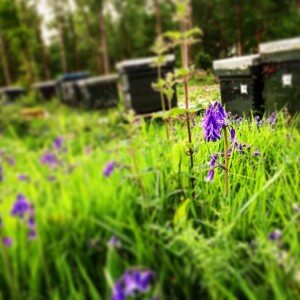 This year’s Open Golf Championship at Royal Troon certainly created a buzz.
This year’s Open Golf Championship at Royal Troon certainly created a buzz.
Scotland has the highest number of golf courses per head of population in the world, and with such a stunning natural environment, who can blame Scots for wanting to get out and play the beautiful game.
But with membership numbers falling, what are clubs doing to attract ethically-minded Millennials to golf, and by extension, what are golfing facilities doing to make sure they become environmental oases,
rather than just ‘green deserts’.
Reports suggest that golf clubs are in crisis, with membership numbers falling rapidly in recent years. Industry leaders want golf clubs to become more business-like, building customer experience into the overall package.
“Millennials are starting to drive spending around the world. From eco-tourism to how they spend their leisure-pound, this generation is buying from more ethical, sustainable and environmentally aware businesses. In a competitive market, every unique selling point is an advantage.
“Golf clubs need to think more about the environment. Many neighbour farmland, or are located in leafy suburbs and could do more to provide pollinator paradises, not only benefiting the course itself, but surrounding crops, woodlands and gardens. By installing managed beehives on courses across the country we could help with the pollination of thousands of acres and support Britain’s farmers and growers.”
There are many grant opportunities available for golf courses, to support their environmental ambitions and increase the biodiversity of the land. These can be accessed through:
The Scottish Golf Environment Group
The Scottish Rural Development Programme
There are a number of other funding mechanisms available should you be looking to install Plan Bee managed beehives on your golf course to support the biodiversity of the land. Please feel free to contact us for further information on 01698 580 572 or email buzz@planbeeltd.com.